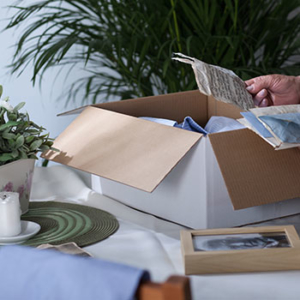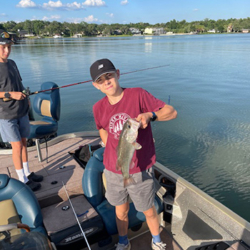 I think everyone needs a troubadour. I’ve told a close friend, who is handy with a guitar, that if money were no object, I’d hire him to walk around singing the ballads of Holland Henderson. I know the songs would not be the most interesting to everyone else, but I would be entertained. When it comes to having my own bard, self-entertainment is all that matters!
I think everyone needs a troubadour. I’ve told a close friend, who is handy with a guitar, that if money were no object, I’d hire him to walk around singing the ballads of Holland Henderson. I know the songs would not be the most interesting to everyone else, but I would be entertained. When it comes to having my own bard, self-entertainment is all that matters!
I believe it is inherent in our design that we want to be storied. We not only love a good story, but we also love to hear stories that include us. When you get together with old college friends or family you grew up with, the first thing you do is tell old stories of each other and yourself. It’s a part of the way we communicate our history, humor, priorities, or even caution. Passed-down stories tell us where we came from and can paint a picture of where we would like to go. Jesus was big into telling parables (aka stories with lessons), and if it’s good for Him then I can follow suit.
A Function of Life
Since stories are a part of communication, how can we use them to benefit our family and the legacy we leave behind? On a recent Beyond Dollars and Sense podcast, I interviewed Dr. Lindy Davidson about her work in end-of-life studies. One of my favorite parts of the interview was our conversation about telling stories for people that would be left in our wake when we die. I believe that this is not a “final days” exercise, but an opportunity for the present.
When we die, our loved ones are left to pick up the pieces of their life, but now one big piece is missing. Think of your spouse, friend, parent, or siblings no longer able to hear your wisdom, humor, or caring words. Death is a function of life, but we can work to normalize the conversations that surround the transfer of wealth when death comes. We can give dignity to the process of dying by preparing our entire lives for the end because the “end” gives way to extending your legacy.
What We Leave Behind
 Hopefully, by leaving behind stories of our legacy, we are helping our loved ones with the process of grief. With that, my challenge to you is simple: write out your legacy. That’s it. Start writing down funny, sad, and interesting stories. Times you were stumped with an issue, how you are living in the world around you, decisions you had to make, and activities you participated in. Write about the moments in time that you spent with your loved ones and how it made you feel. Write about your Tuesdays where nothing happened, and you could not feel more ordinary. Let the reader hear your voice with each word. It does not have to be perfect or grandiose. Rather, tell them that you love them and be human in your written word.
Hopefully, by leaving behind stories of our legacy, we are helping our loved ones with the process of grief. With that, my challenge to you is simple: write out your legacy. That’s it. Start writing down funny, sad, and interesting stories. Times you were stumped with an issue, how you are living in the world around you, decisions you had to make, and activities you participated in. Write about the moments in time that you spent with your loved ones and how it made you feel. Write about your Tuesdays where nothing happened, and you could not feel more ordinary. Let the reader hear your voice with each word. It does not have to be perfect or grandiose. Rather, tell them that you love them and be human in your written word.
 When you have finished writing a few stories, put them with your will and estate documents. I would even encourage you to write a letter about your wishes and why they are important to you. A letter regarding the importance of your decisions will help put some warmth into what are usually very bland yet necessary legal documents. Once you’ve made some headway tell someone about what you’re doing and where they can find your writings. Even though writing out your stories is a small act, it will extend your legacy and help both your loved ones and you appreciate how wonderfully finite our journey is.
When you have finished writing a few stories, put them with your will and estate documents. I would even encourage you to write a letter about your wishes and why they are important to you. A letter regarding the importance of your decisions will help put some warmth into what are usually very bland yet necessary legal documents. Once you’ve made some headway tell someone about what you’re doing and where they can find your writings. Even though writing out your stories is a small act, it will extend your legacy and help both your loved ones and you appreciate how wonderfully finite our journey is.
February 2021




